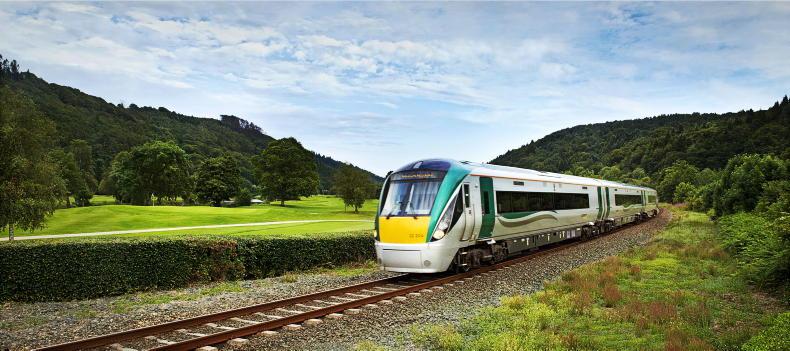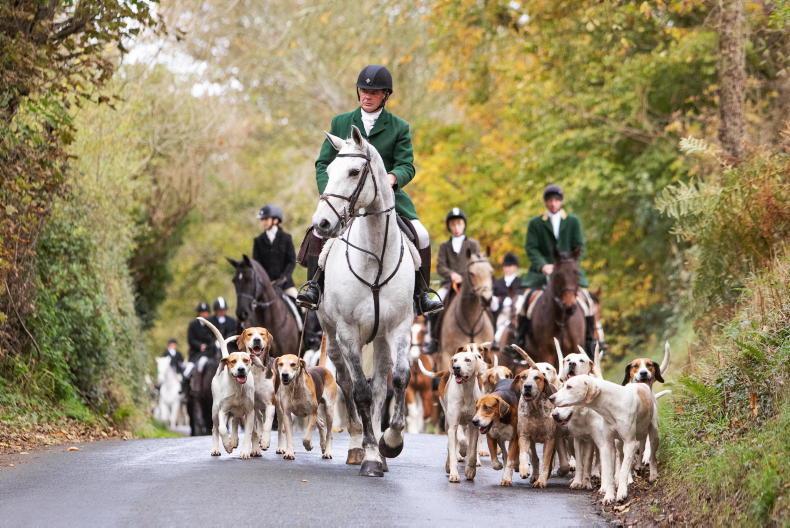The working group established by the Department of Agriculture and the National Parks and Wildlife Service, with input from the Irish Deer Management Forum (IDMF) and the Wicklow Deer Management Partnership, is due to meet this Monday evening to agree a shooting programme in the Calary area of Co Wicklow.
“The project will connect farmers who don’t have anyone shooting on their land at the moment and have a high incidence of deer and the people who normally shoot deer, to reduce deer density,” IDMF chair Judith Annett told the Irish Farmers Journal. “The present level of hunting does not seem to reduce the population,” she added. The meeting is restricted to those farmers targeted in the programme, who have been invited directly.
Once farmers and hunters have worked out an agreement, shooting can take place during the current open season until the end of February for female and antler-less deer. If farmers can prove that deer pose a threat to their business, they can apply for a special license to shoot them outside the season.
TB in 18% of deer surveyed
The Calary area has focused attention for several years because of the high incidence of TB there. A survey published in May 2015 revealed that among a cull of 103 deer there, 16% presented with various stages of bovine TB. This Monday, the IDMF released further data from the continuation of the same study, in which an additional 30 deer were culled. They bring to 18% the rate of deer testing positive for TB over the entire study.
The IDMF was established by the Department of Agriculture in 2015 and includes representatives of farmers, hunters, foresters, conservationists and Government departments. On Monday, it acknowledged farmers’ concerns about their economic future and their fears that TB levels may be similarly high elsewhere in the deer population.
However, the body warned that “levels of bovine TB in deer within the Calary area cannot be taken as representative of levels anywhere else in Ireland or even of anywhere else in Co Wicklow,” and “there is presently no conclusive evidence of a link between the strain of bovine TB in cattle and the strain in the wild deer herd”.
’Reduce deer density’
On the grounds of deer welfare, the IDMF recommended that “a programme to reduce deer density should be designed and undertaken in the Calary area in Wicklow within prescribed seasons and measures”, which is on the agenda of this Monday’s meeting.
The IDMF is also due to examine management of other forms of interaction between wild deer and humans this year, including:
Deer grazing spring pastures that have been set aside for cattle and sheep.Damage to farm crops and forest and woodland plantations.Damage to some nature reserves.Road traffic collisions. Read more
Farms decimated by TB along Galway motorway site
Full coverage: bovine TB
The working group established by the Department of Agriculture and the National Parks and Wildlife Service, with input from the Irish Deer Management Forum (IDMF) and the Wicklow Deer Management Partnership, is due to meet this Monday evening to agree a shooting programme in the Calary area of Co Wicklow.
“The project will connect farmers who don’t have anyone shooting on their land at the moment and have a high incidence of deer and the people who normally shoot deer, to reduce deer density,” IDMF chair Judith Annett told the Irish Farmers Journal. “The present level of hunting does not seem to reduce the population,” she added. The meeting is restricted to those farmers targeted in the programme, who have been invited directly.
Once farmers and hunters have worked out an agreement, shooting can take place during the current open season until the end of February for female and antler-less deer. If farmers can prove that deer pose a threat to their business, they can apply for a special license to shoot them outside the season.
TB in 18% of deer surveyed
The Calary area has focused attention for several years because of the high incidence of TB there. A survey published in May 2015 revealed that among a cull of 103 deer there, 16% presented with various stages of bovine TB. This Monday, the IDMF released further data from the continuation of the same study, in which an additional 30 deer were culled. They bring to 18% the rate of deer testing positive for TB over the entire study.
The IDMF was established by the Department of Agriculture in 2015 and includes representatives of farmers, hunters, foresters, conservationists and Government departments. On Monday, it acknowledged farmers’ concerns about their economic future and their fears that TB levels may be similarly high elsewhere in the deer population.
However, the body warned that “levels of bovine TB in deer within the Calary area cannot be taken as representative of levels anywhere else in Ireland or even of anywhere else in Co Wicklow,” and “there is presently no conclusive evidence of a link between the strain of bovine TB in cattle and the strain in the wild deer herd”.
’Reduce deer density’
On the grounds of deer welfare, the IDMF recommended that “a programme to reduce deer density should be designed and undertaken in the Calary area in Wicklow within prescribed seasons and measures”, which is on the agenda of this Monday’s meeting.
The IDMF is also due to examine management of other forms of interaction between wild deer and humans this year, including:
Deer grazing spring pastures that have been set aside for cattle and sheep.Damage to farm crops and forest and woodland plantations.Damage to some nature reserves.Road traffic collisions. Read more
Farms decimated by TB along Galway motorway site
Full coverage: bovine TB









SHARING OPTIONS